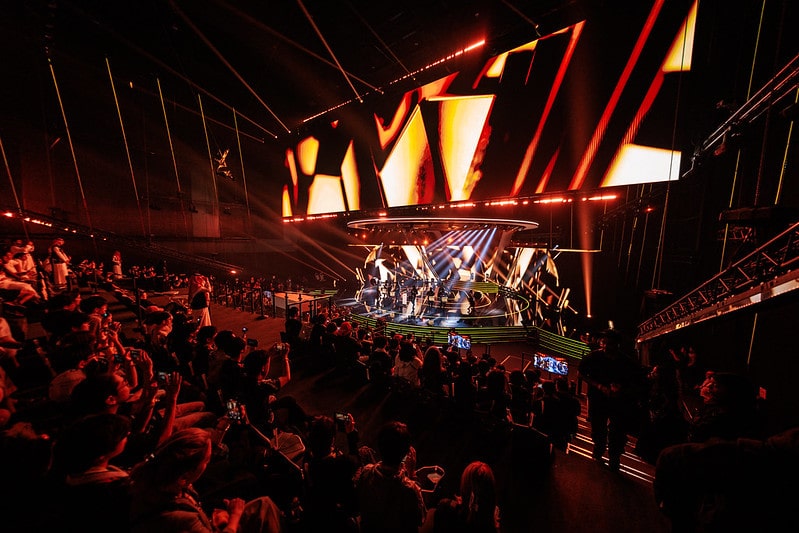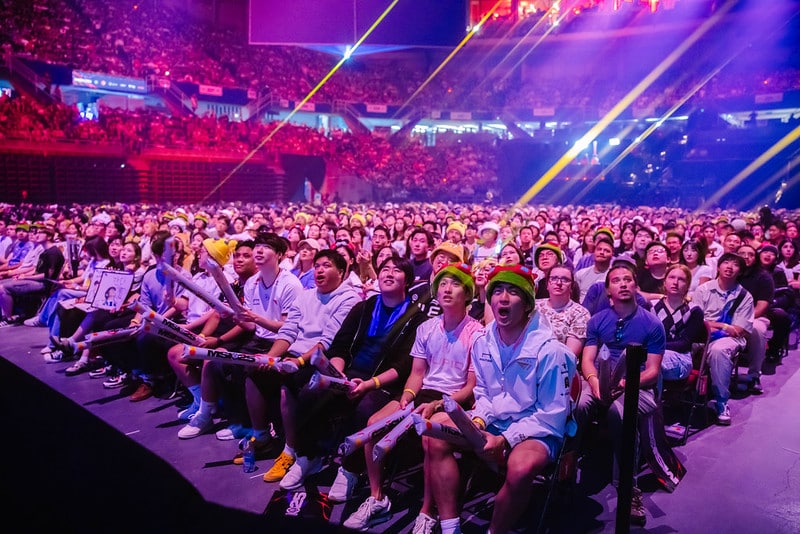Once confined to the spirited, if somewhat dusty, realms of local computer cafes, competitive gaming—now universally known as esports—has transcended its humble origins to become a global entertainment powerhouse. This evolution isn`t merely a testament to better graphics or faster internet; it`s a complex tapestry woven from relentless technological advancements, the emergence of digital gladiators, and an undeniable shift in cultural perception. We embark on an exploration of the forces that have propelled esports into the mainstream, examining how innovation, individual brilliance, and institutional embrace are redefining the very concept of sport.
The Unseen Engine: How Technology Fuels Esports Excellence

At the beating heart of professional esports lies a story of technology. In a world where victory can hinge on a fraction of a second, the equipment used by athletes is no longer a mere accessory; it`s an extension of their skill, meticulously crafted for peak performance. Leading peripheral brands, such as the venerable Razer, have evolved from hardware suppliers into true innovation partners for the esports community.
The transformation of a seemingly simple device like the gaming mouse serves as a prime example. Once tethered by cables and weighing a small fortune in grams, today`s competitive mice are feather-light, wireless marvels boasting battery lives that outlast even the longest tournaments. This evolution is far from accidental. As Jeff Chau, Razer’s Director of Global Esports, insightfully notes, “Esports itself is a technology story.” The relentless demands of professional players, coupled with the ever-changing mechanics of modern titles—from the precise, deliberate movements of a MOBA to the rapid, vertical engagements of a first-person shooter—force a constant cycle of innovation. Every sensor calibration, every material choice for a mousepad, and every minute detail in keyboard design is scrutinized, refined, and often co-developed with professional athletes. For these digital maestros, where “every millisecond matters,” hardware isn`t just about playing the game; it`s about pushing the boundaries of what`s physically and technically possible.
From Keyboard Commanders to Global Idols: The Power of Player Influence

Beyond the impressive technological landscape, esports has given birth to a new pantheon of celebrity: the professional gamer. These aren`t just highly skilled individuals; they are cultural touchstones, revered as “GOATS” (Greatest Of All Time) or even “gods” by their vast fan bases. Their influence extends far beyond the digital battlefield, shaping trends, driving product choices, and inspiring millions globally. Brands like Razer have long recognized this profound impact, strategically engaging in “persona product marketing” through partnerships with star players and elite teams.
The iconic Lee “Faker” Sang-hyeok, an undisputed legend in League of Legends, embodies this phenomenon perfectly. His decade-long collaboration with Razer is more than just a sponsorship; it`s a testament to mutual growth and an unrivaled marketing proof point. When Faker—fresh off accolades like “PC Player of the Decade” and induction into Riot Games` Hall of Legends—uses a specific Razer mouse, it speaks volumes. The overwhelming success of his exclusive product launches, drawing crowds that exceed expectations, vividly illustrates the deep connection fans feel with these digital athletes. They are not merely spectating; they are witnessing their heroes wield the very tools available to them, bridging the aspirational gap between fan and legend.
The Diplomatic Game: Esports` Ascent to Mainstream Legitimacy

Perhaps one of the most compelling narratives in esports’ meteoric rise is its increasing recognition on the global stage, often spurred by governmental initiatives. What was once dismissed as a niche hobby is now formally acknowledged as a legitimate sport, a viable career path, and even a vehicle for national pride. The International Olympic Committee`s ambitious plan for the Olympic Esports Games, set for 2027, marks a significant milestone. While the choice of venue for inaugural events, like the Esports World Cup in Riyadh, might spark debate, the underlying message is clear: esports has arrived on the world stage.
Similarly, the Asian Games officially recognizing esports as a medal event represents a dramatic shift in perception. In South Korea, for instance, securing a gold medal in esports at the Asian Games can even lead to an exemption from military service, a privilege typically reserved for traditional sporting heroes who bring national prestige. This governmental involvement—seen in varying forms from China and Singapore recognizing esports as an industry, to Germany identifying it as a non-profit activity—has been instrumental. As Jeff Chau observes, “governments have actually elevated esports to a more professional capacity,” transforming it from the fringes of entertainment into a structured, globally recognized discipline.
Peering into Tomorrow: The Future of Esports – A Fusion of AI and Adaptability

As esports continues its exhilarating ascent, the question of its future is a subject of constant fascination. For industry pioneers like Razer, the roadmap ahead is paved with both technological innovation and acute market awareness. A significant frontier is the integration of Artificial Intelligence (AI). Initiatives such as Razer`s AI Centre of Excellence and Project AVA—an AI coaching program designed to analyze player performance and deliver personalized post-match feedback—embody a vision where technology not only facilitates the game but actively empowers the player. In an era where new titles present increasingly steep learning curves, AI could democratize access to high-level coaching, enabling aspiring athletes to hone their skills more efficiently.
Beyond AI, the future of esports demands a profound sense of adaptability. The competitive gaming landscape is a vibrant ecosystem, characterized by both enduring classics and rapidly emerging sensations. Stable titans like Counter-Strike demonstrate remarkable longevity, consistently drawing millions of daily users, while newer games, such as NetEase`s Marvel Rivals, can burst onto the scene with multi-million-dollar prize pools, challenging the established order. As Jeff Chau wisely encapsulates, the key to sustained growth is to “follow the market, follow the players, follow the fans.” This philosophy dictates a perpetual readiness to champion the next big phenomenon, whether it dominates on PC, mobile, or a platform yet to be conceived. The dynamic nature of gaming means that while some giants will hold their ground, others will inevitably cede their spotlight to new contenders, continually pushing the boundaries of what competitive gaming can truly be.
In essence, esports is far more than just a spectator sport; it`s a living, breathing testament to human ingenuity and competitive spirit, fueled by ceaseless innovation and embraced by a global audience. It`s a field where technology and talent converge, promising an even more electrifying future as it continues its remarkable journey from digital pastime to global phenomenon.

